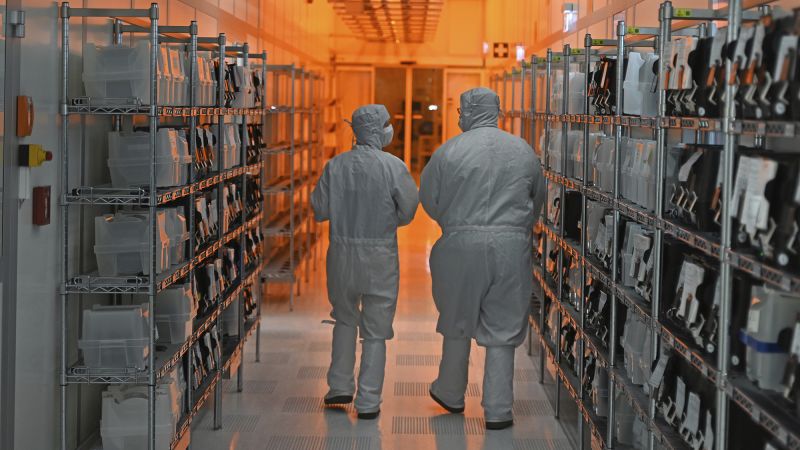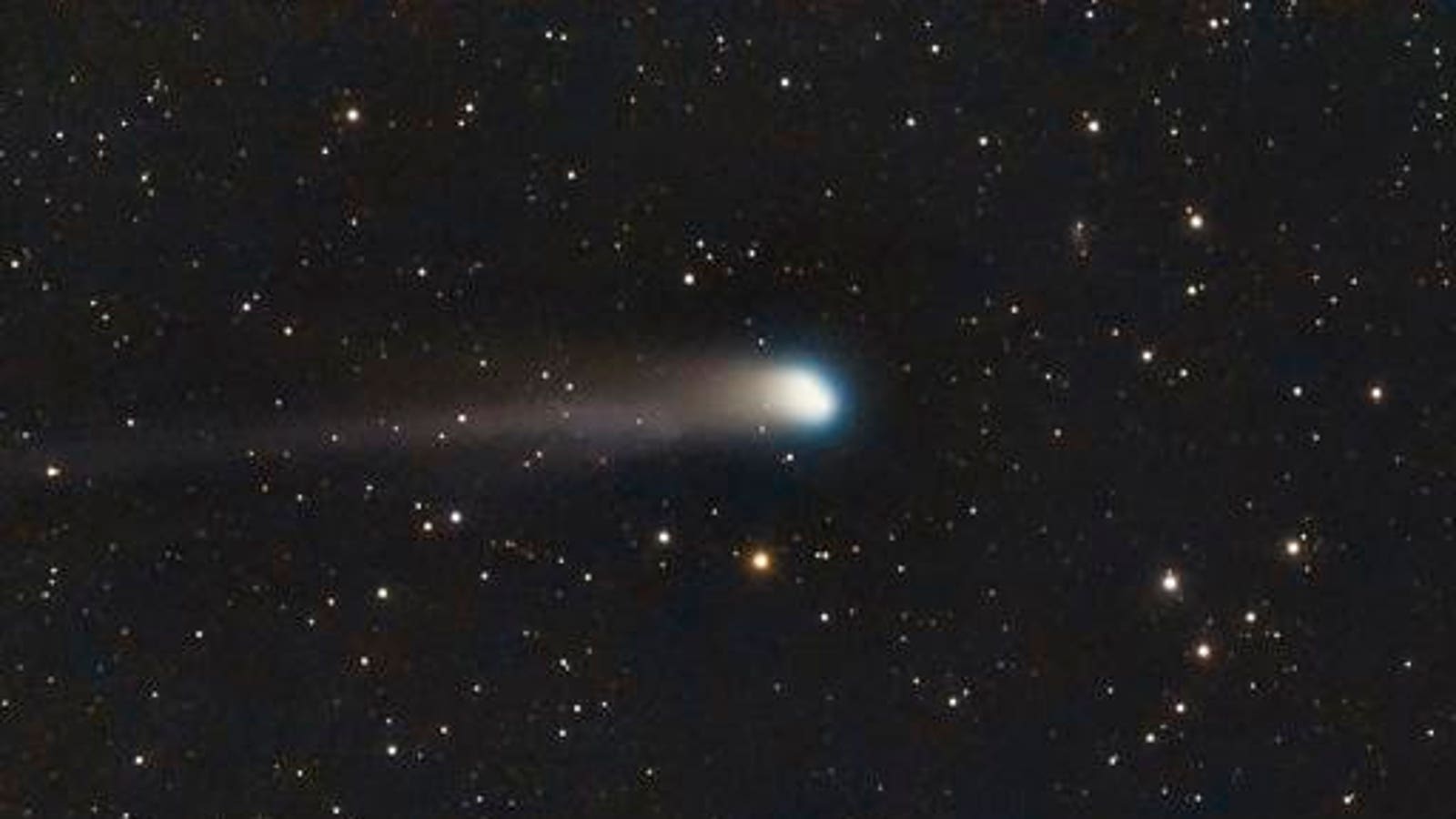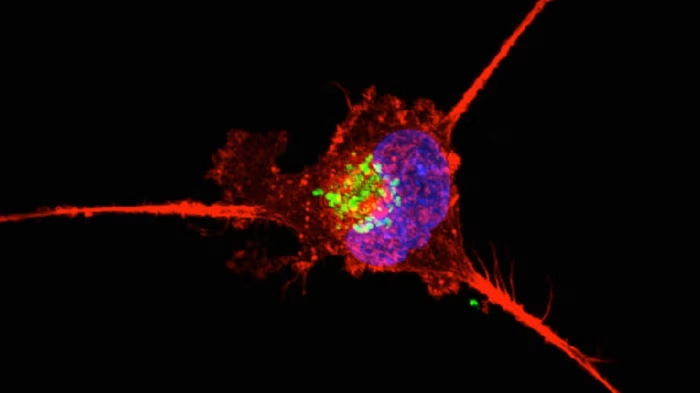Blog
-

Ducks Fall in Four to No. 17 Penn State
EUGENE, Ore. — The Oregon volleyball team saved a pair of match points but ultimately fell to No. 17 Penn State in four hard-fought sets Saturday night at Matthew Knight Arena. Alanah Clemente posted 23 kills for a second time in as many days… -

A US-China trade dispute over a little-known Dutch chipmaker could bring auto plants to a halt and send car prices higher
Few car buyers have heard of Nexperia. But this Dutch company makes chips that are essential for making cars — and now, it’s at the center of a trade dispute that could shutter global auto plants and send already-record-level car prices even higher.
The dispute is just one part of wider trade tensions between the United States and China. The Nexperia saga began in earnest this past December when the US Commerce Department put Nexperia’s parent company, China-based Wingtech Technologies, on a list of companies facing trade restrictions.
Then, this October, China’s Ministry of Commerce banned Nexperia China and its subcontractors from exporting specific finished components and sub-assemblies manufactured in China. The Dutch government took control of Nexperia following this move.
The tensions have prompted concerns of possible auto plant shutdowns, since the chips Nexperia makes are critical to the assembly of the cars and trucks in which they’re installed. The fear is that the trade dispute could halt Nexperia’s production of the chips, and it would be difficult to replace them.
When and if auto plants might be forced to halt operations is not clear. But a similar chip shortage following the pandemic caused temporary plant shutdowns and the supply of new autos to drop significantly for more than a year. That shortage in turn helped drive up the price of both new and used cars.
Vehicles have become more dependent on computer chips, transistors and diodes on everything from adjusting driver’s seats to feeding the proper amount of fuel into engines and providing braking power. Vehicles can’t be completed if those critical components are unavailable.
While Nexperia is little known outside the industry, its site says the company has more than 6,000 products qualified for use in automobiles, and shipments of 110 billion of its products annually. It has 12,500 employees across Europe, Asia and the United States. It said it’s working on business continuity plans and is “confident that a solution will be found.”
But automaker trade groups are less confident and have sounded the alarm of possible auto plant shutdowns.
“If the shipment of automotive chips doesn’t resume – quickly – it’s going to disrupt auto production in the U.S. and many other countries and have a spillover effect in other industries,” John Bozzella, CEO of the Alliance for Automotive Innovation, a lobbying group for most major automakers, said in a statement. “It’s that significant. We’re urging a quick resolution, so U.S. and global automaking remains on track.”
The European Automobile Manufacturers Association said it would take months to get new supplies of the components its members have been getting from Nexperia, while the supply of its chips is expected to last only weeks.
“Automakers have taken steps over the last years to diversify supply chains but risk cannot be mitigated down to zero. This is a cross-industry issue affecting a large number of suppliers and virtually all of our members,” Sigrid de Vries, director general of the European associations, said in a statement.
“We suddenly find ourselves in this alarming situation,” she added. We really need quick and pragmatic solutions from all countries involved.”
Nexperia make about 40% of the automotive chips in the segment of the market that includes transistors and diodes, according to Ian Riches, vice president of the global automotive practice for research firm TechInsights.
Automakers are already being forced to deal with increased costs due to tariffs being imposed by the Trump administration. While many are absorbing the costs so far, Kelley Blue Book came out with an estimate last week that the average US new car price just topped $50,000 for the first time.
Continue Reading
-

See Bright Comets As Meteor Shower Peaks
Topline
Two green comets will reach their minimum distance from Earth, likely peaking in brightness, after sunset on Monday, Oct. 20, just hours before the peak of the annual Orionid meteor shower, itself the product of the famous Halley’s…
Continue Reading
-

Eurogamer Weekly Digest, 19th October – highlights you might have missed this week in reviews, features, and news
Phew! It barely feels like seven days have passed since last time, but here we are again with another Weekly Digest – in which we recap some of the highlights you might have missed over this past week on Eurogamer. And what a…
Continue Reading
-

Close Losses in First Two Sets Haunt Vikings in Five-Set Loss to Montana
PORTLAND, Ore. — The Portland State volleyball team lived by the two-point set…
Continue Reading
-
ADC Improves Outcomes for Patients with Advanced Triple-Negative Breast Cancer Who are Ineligible for Immune Checkpoint Inhibitors
Patients with an aggressive form of breast cancer who are not candidates for immune checkpoint inhibitor therapy showed significantly improved progression-free survival when treated with the antibody drug conjugate sacituzumab govitecan compared to standard chemotherapy. These findings, which stem from the ASCENT-03 trial in triple-negative breast cancer co-led by investigators at Dana-Farber Cancer Institute, are presented today at the European Society for Medical Oncology (ESMO) Congress 2025 in Berlin, Germany. They are also published simultaneously in the New England Journal of Medicine.
Triple-negative breast cancer (TNBC) accounts for about 15% of all breast cancer cases and is often difficult to treat. The 5-year survival rate for patients with metastatic disease is about 15%. Moreover, around 60% of patients with metastatic TNBC have tumors that lack the molecular marker PD-L1. This absence indicates the tumors will not respond to immune checkpoint inhibitors. For most patients with previously untreated TNBC, chemotherapy is the primary treatment option.
“There are limited treatment options for patients with advanced triple-negative breast cancer — and that is especially true for those patients whose tumors are PD-L1-negative,” says Dr. Sara Tolaney, chief of the Division of Breast Oncology at Dana-Farber and senior author on the study. “Finding novel treatments that are effective in this patient population is a major priority for the field.”
Sacituzumab govitecan, an antibody drug conjugate (ADC), targets the protein Trop2, which is present at high levels on the surfaces of TNBC cells. The ADC binds to Trop2 and, through its molecular payload, delivers a potent chemotherapy drug directly to tumor sites. Sacituzumab govitecan is currently approved as a second-line treatment for patients with advanced TNBC. However, roughly half of patients with this disease do not go on to receive a second line of therapy, underscoring the magnitude of the unmet need.
ASCENT-03, a global, randomized, open-label phase 3 study, evaluates the use of sacituzumab govitecan versus standard chemotherapy as a first-line treatment in patients with locally advanced or unresectable TNBC who are not candidates for immune checkpoint inhibitors. A total of 558 patients across 229 clinical sites in 30 countries were enrolled and randomized to receive either sacituzumab govitecan or chemotherapy. In both treatment groups, about 99% of patients had PD-L1 negative tumors (277 out of 279 for sacituzumab govitecan; 278 out of 279 for chemotherapy).
After a median follow-up of 13.2 months, patients treated with sacituzumab govitecan were more likely to survive longer without disease progression, with a median progression-free survival of 9.7 months compared to 6.9 months for patients treated with chemotherapy. Those who responded showed a median duration of response of 12.2 months, compared to 7.2 months for those patients who responded to chemotherapy.
Data on overall survival are immature at this time. The safety profile of sacituzimab govitecan was consistent with its known profile and was manageable with current guidelines and supportive care.
“As oncologists and investigators, we’re always trying to move more effective therapies into earlier lines of treatment because we want patients to be able to have robust responses that potentially will translate into survival outcomes,” says Tolaney. “The data from ASCENT-03 are very compelling and support sacituzumab govitecan as a potential new standard of care for patients with previously untreated triple-negative breast cancer who are unable to receive immune checkpoint inhibitors.”
Dana-Farber investigators were involved in the first studies of sacituzumab govitecan in humans and participated in the pivotal clinical trials that led to its initial U.S. Food and Drug Administration approval for patients with pre-treated triple-negative breast cancer. Tolaney also helped lead the TROPiCS-02 study, which led to the ADC’s approval in pre-treated patients with HR-positive, HER2-negative metastatic breast cancer. Earlier this year, Dr. Tolaney presented results of the phase 3 ASCENT-04/KEYNOTE-D19 trial, which showed the combination of sacituzumab govitecan plus pembrolizumab resulted in durable responses with improved progression free survival compared to current standard treatment in patients with metastatic triple negative breast cancer that tests positive for the immune checkpoint PD-L1.
Funding: The ASCENT-03 trial was funded by Gilead Sciences, Inc.
Continue Reading
-

Drug groups unveil advances in treating most difficult breast cancers
Stay informed with free updates
Simply sign up to the Pharmaceuticals sector myFT Digest — delivered directly to your inbox.
AstraZeneca, Daiichi Sankyo and Gilead have made big advances in treating the hardest-to-tackle type of breast cancer, boosting prospects for tens of thousands of patients a year.
The drugmakers are unveiling trial results for existing blockbuster drugs in “triple negative” breast cancer — so-called because it is not one of the three main types. These include the first ever study showing a medicine can extend the life of patients who cannot be treated with immunotherapy drugs, the majority of triple negative cases.
Patients with triple negative breast cancer make up about 10 per cent to 20 per cent of people diagnosed. Breast cancer is the most common type of the disease in the UK, and the second most common after skin cancer in the US.
AstraZeneca and Japanese pharma company Daiichi’s drug Datroway improved overall survival for patients by 23 per cent, and increased the time they lived without the cancer getting worse by 43 per cent, compared with those treated with chemotherapy.
David Frederickson, executive vice-president for oncology at AstraZeneca, said the results showed an “outstanding opportunity” to expand treatment to more patients. The company has had 10 positive late-stage trial results in oncology this year, five of which have been in breast cancer.
“It’s been an exceptional year,” he said. “The breast cancer studies alone have the opportunity to reach nearly half a million patients.”
Frederickson added AstraZeneca’s oncology sales rose 16 per cent year-on-year in the first half and he hopes they will contribute half of the company’s goal of $80bn of sales by 2030.
AstraZeneca and Daiichi also announced positive trial results for their Enhertu breast cancer drug in earlier-stage patients. The treatment is approved for later-stage patients but it is not available on the NHS in England, even though it is in many other countries including Scotland.
One of two Enhertu studies found a three-year disease-free survival rate of 92 per cent, compared with 84 per cent with the most commonly used drugs.
Fredrickson said there needs to be a “modernisation” of NHS methodologies, including valuing the end of life more, to ensure patients can get access.
The results were presented at the European Society for Medical Oncology this weekend, where US drugmaker Gilead also reported positive results for its cancer drug Trodelvy in patients with triple negative breast cancer.
Trodelvy, which is already approved for breast cancer, reduced the risk of cancer progression or death by 38 per cent versus other forms of chemotherapy. Survival rates were extended with the drug to 9.7 months versus 6.9 months for chemotherapy, the company said.
Trodelvy generated $657mn for Gilead in the first six months of 2025, up 5 per cent from the same period last year. Oncology accounts for about 12 per cent of the company’s sales.
The latest data for Trodelvy marks a bounceback for the drug. A year ago, Gilead withdrew it for certain urinary tract cancers after it failed a drug trial.
Eli Lilly also reported encouraging data. Its Verzenio drug prolonged survival for certain high-risk early breast cancers by 15.8 per cent versus conventional treatments. It is the first therapy in more than two decades to demonstrate a significant overall survival benefit in certain, high-risk early breast cancers.
Continue Reading
-

Manx breast cancer survivor urges others ‘not to be scared’
Rebecca Brahde and
Ashlea TraceyIsle of Man
 CHIARA MAZZONE
CHIARA MAZZONEChiara Mazzone was diagnosed with breast cancer in summer 2023 A breast cancer survivor has urged others “not to be scared to get checked out”.
Chiara Mazzone had been attending annual…
Continue Reading

